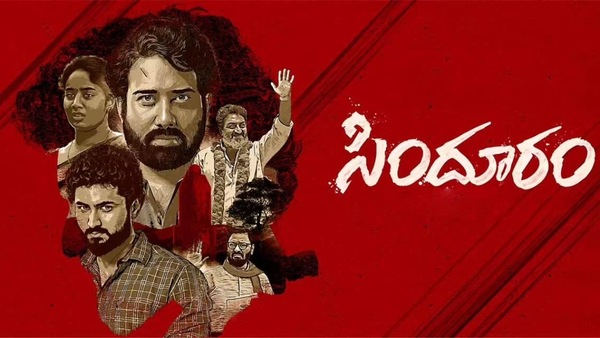Sindhooram review: Where the story triumphs over the storytelling
Shyam Tummalapalli’s film, based on true incidents, discusses the decline of naxalism owing to self-centred leaders

Last Updated: 12.11 PM, Jan 26, 2023
Story:
Ravi, a youngster in his 20s, runs a small-time coffee stall in Sriramagiri (a village in Khammam). Sirisha Reddy, sister to the village head Eeshwar Reddy, returns to her native as an MRO. Ravi and Sirisha, college mates earlier, rekindle their friendship. However, Ravi conceals his true identity from his lady love and this could prove to be the biggest undoing of their relationship.
Review:
Telling a political story very specific to an era and making it relevant to a modern-day viewer, who may not be politically aware, is a true test of a filmmaker’s mettle. A storyteller needs to offer a socio-political context of a period, underline its significance to help a viewer go back in time and realise why it’s a story that deserves to be told.
Sindhooram, inspired by true incidents, discussing the futility of naxalism across decades, merits your time. However, does it make for a compelling viewing experience on the whole? Not quite. As much as you appreciate the intent, the execution is unimaginative and dull. The storytelling is excessively preachy; the film is verbose, relying on heavy-handed dialogue to express its ideas.
There are many one-note characters, so much so that many people feel like few placards sans any personality. Cinematographer-turned-director Shyam Tummalapalli preserves his surprises for the second hour but the strategy comes with a price. He doesn’t mind taking a leisurely approach to building his world, leading to a dramatic finale.
The rural politics revolving around communists/naxals, village heads and government officers in Sindhooram has a make-believe quality and lacks nuance. The power-hungry village head is the problem and his progressive daughter is the solution. The narrative is simplistic and is reduced to an ‘us versus they’ story without understanding the belief system of both sides in greater detail.
Why did the system fail? What was the need for an alternative? If only these ideas were fleshed out better, Sindhooram would’ve made a stronger impact. The film is ultimately a love story between a man and a woman of different classes with contrasting ideologies and how it’s hard to find for them to find common ground. However, it’s inexcusable that the romance segments are a snoozefest.
The backstory to justify Ravi’s turn as a naxal sympathiser doesn’t strike a chord. Sindhooram gains steam when it focuses on Ravi and Sirisha’s clashes around naxalism. The sequences throwing light on the history of communism in Russia, China and how naxalism has provided little hope across the globe, are educative but the filmmaker misses out on the cinematic highs.
The 30-minute stretch leading to the climax is indeed a high point of Sindhooram; the twists are used smartly and the drama is finally hard-hitting. Despite building enough tension, many sequences fail to land because of the poor action choreography. The film doesn’t use the musical potential of the story as well as you would imagine, given how crucial is art to any form of revolution.
Brigida Saga is a promising talent though the film needed an actress with more gravitas and experience, whose worldly wisdom would’ve been convincing for a viewer to buy. Siva Balaji is the pick of the lot and is impressive in a meaty part. Dharma Mahesh may have the good looks but comes a cropper in several situations that demand a restrained, composed performance.
Dayanand Reddy, Ravi Varma, Naga Mahesh, Keshav Deepak and Anand Chakrapani do what’s expected of them. Beyond them, a few supporting actors appear miscast at places.
Director Shyam Tummalapalli, despite his shortcomings, deserves praise; he stays true to his premise without any forced commercial compromises. Very rarely have Telugu filmmakers conveyed their stance on a sensitive political issue fearlessly and Shyam is one among them - his conviction certainly shows.
Verdict:
If you find your way past a middling, dull first hour, Sindhooram is a not-so-bad (anti) naxal drama with a few interesting twists. The director Shyam Tummalapalli drives his idea forward through good dialogues though the storytelling and characterisation could’ve been better. Among the lead actors, Siva Balaji shines and (yet again) proves why he’s one of the most underutilised talents of this generation.
Subscribe to our newsletter for top content, delivered fast.

